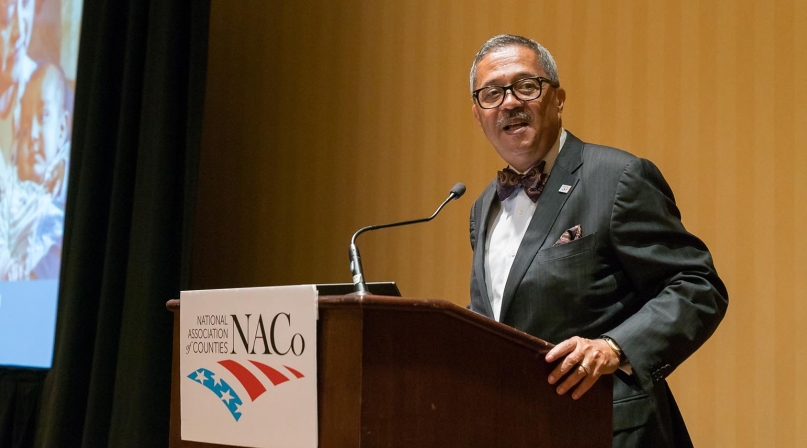Zeroing In on Zero-to-Three
Author

Hon. Roy Charles Brooks
Upcoming Events
Related News

Ages 0-3 is where counties can make the most difference, move the needle on addressing poverty in the United States... raise awareness about the county role in addressing poverty, advocate for federal policies & support
For more than 30 years, I have worked in my community as a volunteer, city official and a county commissioner. I have made it my life’s work to improve Tarrant County residents’ health and well-being, and I know this is a value and commitment shared by county elected officials in their communities across this country. Despite all of our efforts, people continue to struggle and generations of families cycle through poverty, seeing little way out. Although counties put people first, poverty can push them to the end of the line. Sadly, it is children who are impacted more than any other age group.
Research shows that adverse childhood experiences (ACEs), including poverty, can impact infants for the rest of their lives. Early trauma can lead to a life of poverty, violence, health issues and lack of the developmental skills necessary for success in school and in life.
When I became president of NACo last year, I was thrilled to have the opportunity to focus on multi-generational poverty, with an emphasis on children ages 0 to 3. This is where I believe counties can make the most difference and where we can move the needle on addressing poverty in the United States. We’re calling it “Serving the Underserved” with an intent to raise awareness about the county role in addressing poverty, and advocating for federal policies and support to provide the resources and programs needed to help those most in need.
As the ultimate safety net, county investment in early childhood development does not just help children who are suffering now, but it will also lower future costs in county health, child welfare, safety and justice and other systems. But we know we cannot do it alone. Counties need partnerships with the public, private and non-profit sectors at the federal, state and local levels to remove barriers, build opportunities and address the many faces of poverty in America.
Poverty is not just a suburban, urban or rural problem. One in five children lives in poverty in a majority of our counties. You’ll find even in our most affluent areas there are pockets of poverty where children’s basic needs are not being met.
Children and their families need to live in safe, stable and nurturing communities with access to healthcare, quality childcare and family support. Childhood experiences, both positive and negative, have a tremendous impact on the future health, well-being and success of young people. We must do everything we can to get children on the path to success. By providing the services and support that families need, all children can break the cycle of poverty and reach their full potential.
While a year is not a long time, NACo is committed to this initiative long-term. NACo is building awareness and providing tools to help counties create thriving communities which support all families. This presidential initiative won’t be able to solve the problem, but it’s a start. It’s going to take all of us, but I know we can make a difference – and we must, our children are counting on us!
Attachments
Related News

USDA and HHS release new dietary guidelines
On January 7, U.S. Department of Agriculture Secretary Brooke Rollins and U.S. Department of Health and Human Services Secretary Robert F. Kennedy, Jr. unveiled the new Dietary Guidelines for Americans, 2025–2030.

County Countdown – Dec. 15, 2025
Every other week, NACo's County Countdown reviews top federal policy advocacy items with an eye towards counties and the intergovernmental partnership.